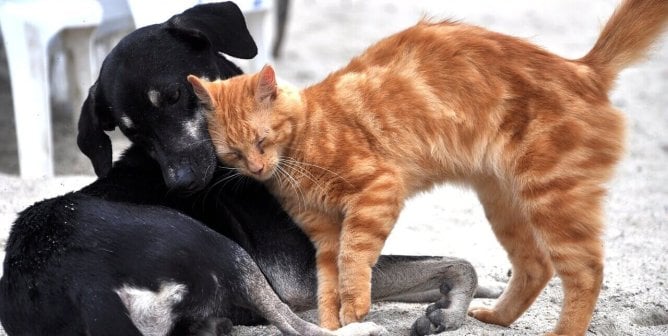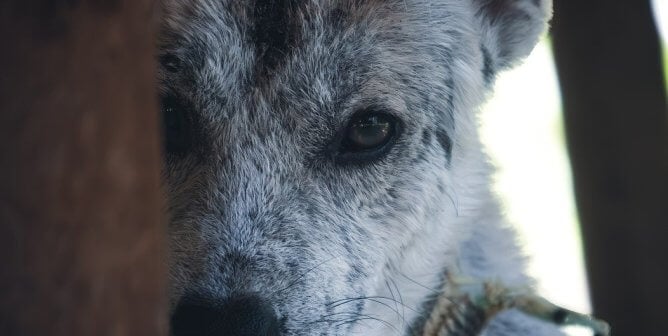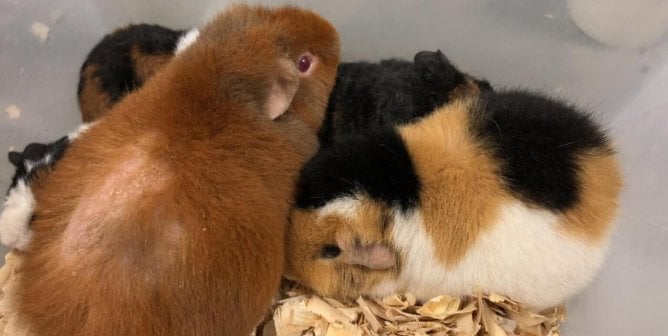Why Animals Do Not Make Good Gifts
Animals are not toys. They are sentient beings who, like us, require love and proper care to flourish. Although people who give animals as gifts invariably have good intentions, it is unfair to give an animal to anyone unless you are absolutely certain that the person wants that particular animal as a companion and is willing and able to give a lifetime of proper care.
Children Can Be Cruel
Intentionally or not, sometimes children are cruel to animals. Puppies, kittens, bunnies, chicks, baby ducks, and other young animals are especially vulnerable. Small children may unintentionally torment and/or harm animals, even breaking their fragile bones or causing other fatal injuries.
Adoration may turn to indifference or even hostility when a child loses interest in an animal, who may then go without necessary care. The child’s parents or the adult who gave the child the animal may become impatient and try to “solve” the problem by turning the animal over to a shelter or a pound or—worse—passing the animal on to a series of homes, causing trauma, psychological scarring, and behavioral problems.
Think Before Giving
Adding an animal companion to the family is an important decision. Adopting an animal means making a permanent commitment to care for and spend time with the animal and to provide for him or her in case of one’s absence for the entire life of the animal. Before adopting, consider the time and money involved in proper animal care. Will someone have the time and patience to exercise and housebreak the animal? Is someone prepared to pay for food, accessories (such as toys, grooming supplies, leashes and harnesses, and bedding), inoculations, and veterinary care, including spaying or neutering, flea treatment, worming, and emergency care?
If a family decides to adopt an animal, every member of the family should go to the local shelter together to choose the animal, having already discussed the obligations and long-term commitments involved. It is also necessary to be aware of local, state, and federal regulations that govern animal “ownership.” Most communities require annual licensing for dogs and cats, and many require that animals be on the custodian’s property at all times and that they be spayed or neutered.
Too Few Happy Endings
Animal shelters are filled beyond capacity with homeless animals. Many of these are former “pets” who were easily acquired but, for one reason or another, didn’t fit into someone’s lifestyle. Whether they are dogs, cats, rabbits, gerbils, chicks, ducks, or goldfish, some people regard them as expendable. Unwanted animals are often passed from home to irresponsible home as the novelty of having an animal wears thin at each successive place. Many people experience little or no guilt when turning an animal over to an overburdened humane society or animal-control agency that is likely filled to capacity with other abandoned animals. Many animals are simply abandoned on the road or in the yard when the family moves away. “Hordes of dogs,” were reported in a forest near DeSoto, Iowa, where locals said unwanted animals are routinely dumped. Dogs who were rescued were covered in ticks, open wounds and showed signs of neglect.1 In Massachusetts, abandoning animals is considered a crime and punishable by thousands of dollars in fines and years in jail.2
What You Can Do
Don’t ever give an animal as a gift! If you have discussed the idea with the prospective recipients and know that they have the time, willingness, ability, and resources to properly care for an animal and make that serious commitment, consider offering them a gift certificate from the local animal shelter.
If you attend a fair, flea market, or other event at which animals are being given away, educate those who are responsible. If people are offering free kittens or puppies, for example, explain the risks of giving animals to unknown passersby—some people sell dogs and cats to laboratories or dealers, and others abuse, neglect, or abandon them. Ask PETA for fliers on spaying and neutering and copies of the brochure “Finding the Right Home for Your Companion Animal” to share with these people.
If a business is giving away animals as a promotion, complain to sponsors, explaining what can happen to animals who are not taken by caring, capable people. Get sponsors to save lives by giving away stuffed toy animals instead.
References
1Linh Ta, “‘It’s Heart-wrenching’: Unwanted Dogs Left on Their Own in Iowa Forest,” Des Moines Register, 15 Aug. 2018.
2Erin Tiernan, “Quincy Animal Shelter Pleads with Owners To Stop Abandoning Pets,” The Patriot Ledger, 18 Sept. 2018.








